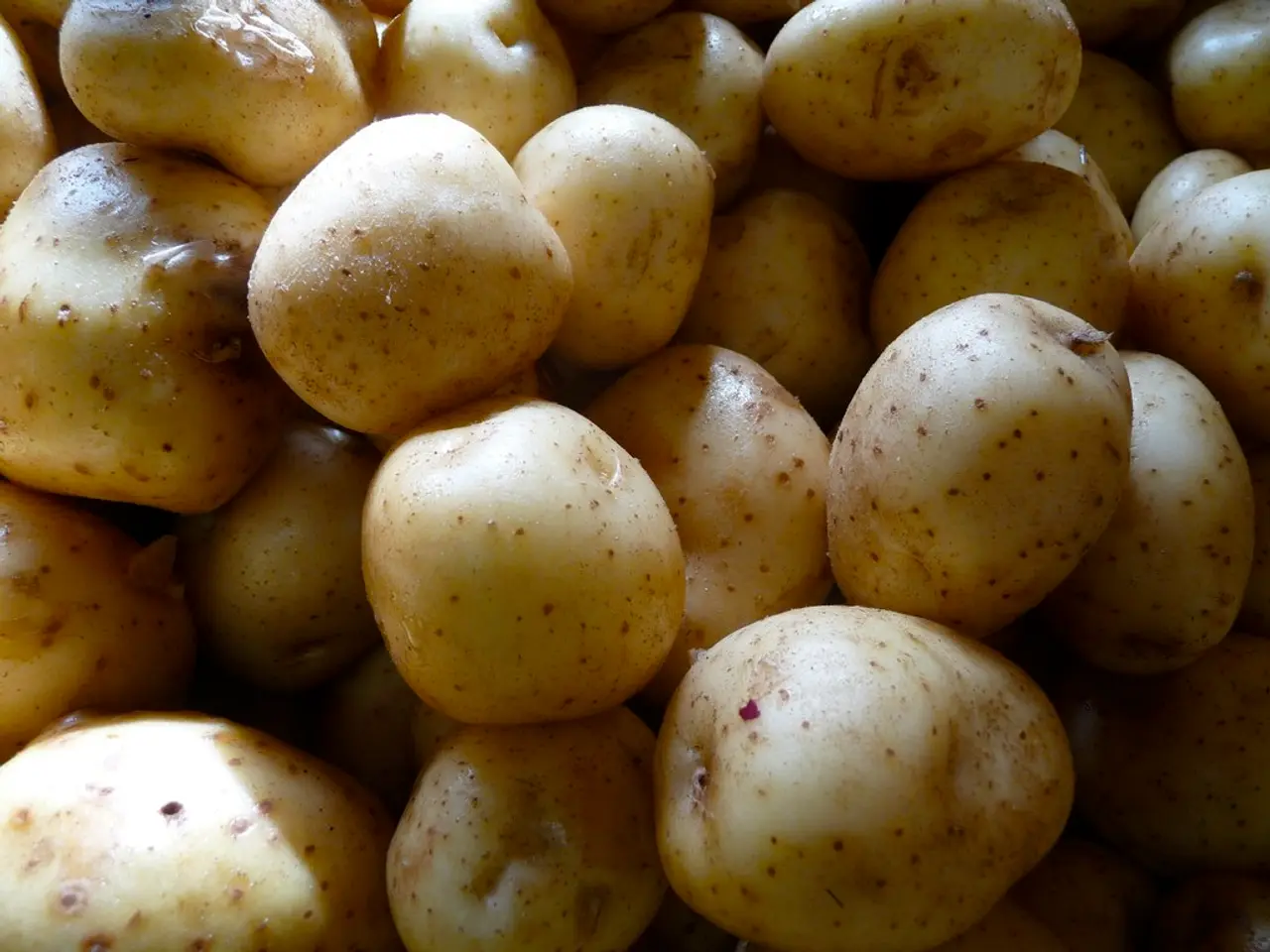The Nutritional Comparison: Sweet Potato vs. Potato, Which is More Nutritious?
In the world of root vegetables, two staples stand out: potatoes and sweet potatoes. While they may share similarities, a closer look reveals key nutritional differences that set them apart.
Both potatoes and sweet potatoes are lower-calorie, low-fat foods, rich in fiber, carbohydrates, potassium, vitamin B6, and vitamin C. However, it's the slight nutritional edge that sweet potatoes hold that makes them stand out.
Sweet potatoes, belonging to the morning glory clan, are packed with beta carotene, an antioxidant that converts into high levels of vitamin A in the body. This vitamin A is essential for vision, immunity, and cell protection against damage and diseases like cancer. Regular potatoes, on the other hand, have white or yellow flesh, while sweet potatoes boast an orange innard.
When it comes to calories, a 100g serving of sweet potato contains about 86 calories, compared to 77 calories in the same amount of regular potato. The higher fiber content of sweet potatoes, approximately 2g compared to 1.6g in regular potatoes, supports digestion, promotes fullness, and aids in blood sugar control.
The nutritional benefits of both potatoes and sweet potatoes can be negated by cooking methods like deep frying. Baking potatoes causes the least reduction in nutrients compared to other cooking methods. Eating the skin of baked potatoes is beneficial as it contains half of the fiber.
In terms of vitamins and antioxidants, sweet potatoes are rich in lutein and anthocyanins, in addition to beta-carotene. Regular potatoes provide important nutrients such as potassium and some B vitamins.
Regarding blood sugar impact, regular potatoes generally have a higher glycemic index, leading to faster blood sugar spikes compared to sweet potatoes. This makes sweet potatoes a better choice for those seeking smoother blood glucose control.
So, which one is considered healthier? The answer depends on individual health goals and dietary needs. Sweet potatoes are often favored for their higher fiber, antioxidants, and vitamins, making them excellent for digestion, immunity, and blood sugar management. Regular potatoes, on the other hand, provide energy-packed carbohydrates, potassium, and resistant starch, which are valuable for energy and gut health.
In summary, sweet potatoes lean toward a more nutrient-dense profile with bigger benefits for fiber, vitamins A and C, and blood sugar control, making them slightly healthier overall for many people. However, regular potatoes are still nutritious, especially for energy and potassium, and both can be part of a healthy diet depending on preparation and individual needs.
From Twice-Baked Potatoes to Ginger Sweet Potato Pancakes, there are numerous recipes that showcase the health benefits of both potatoes and sweet potatoes. Whether you're looking for a side dish or a main course, these versatile root vegetables offer a wealth of nutritional benefits to suit a variety of dietary needs.
[1] Harvard T.H. Chan School of Public Health. (n.d.). Potatoes, raw. Retrieved from https://www.hsph.harvard.edu/nutritionsource/food-nutrients/potatoes/ [2] Harvard T.H. Chan School of Public Health. (n.d.). Sweet Potatoes, baked, without skin and without salt. Retrieved from https://www.hsph.harvard.edu/nutritionsource/food-nutrients/sweet-potatoes/ [3] United States Department of Agriculture. (n.d.). FoodData Central. Retrieved from https://fdc.nal.usda.gov/fdc-app.html#/food-details/170874/nutrients [4] United States Department of Agriculture. (n.d.). FoodData Central. Retrieved from https://fdc.nal.usda.gov/fdc-app.html#/food-details/170875/nutrients [5] Harvard T.H. Chan School of Public Health. (n.d.). Potatoes, baked, with skin and without salt. Retrieved from https://www.hsph.harvard.edu/nutritionsource/food-nutrients/potatoes/baked-potatoes/ [5] Harvard T.H. Chan School of Public Health. (n.d.). Potatoes, boiled, without skin and without salt. Retrieved from https://www.hsph.harvard.edu/nutritionsource/food-nutrients/potatoes/boiled-potatoes/
- Incorporating these low-calorie, fiber-rich foods into your health-and-wellness lifestyle can bring a variety of benefits, with sweet potatoes providing an edge due to their high levels of beta carotene that convert into vitamin A for vision, immunity, and cell protection.
- For those interested in fitness-and-exercise, maintaining a balanced nutrition, especially with food-and-drink options like sweet potatoes and regular potatoes, will support their overall health while providing sustainable energy.
- Nutrition experts encourage people to embrace cooking, as it offers opportunities to practice nutrition and lifestyle choices with recipes that focus on food-and-drink options like Twice-Baked Potatoes or Ginger Sweet Potato Pancakes.
- In terms of food news, science consistently uncovers new nutritional benefits in root vegetables such as the antioxidants lutein and anthocyanins found in sweet potatoes.
- Lifestyle choices like incorporating more nutrient-dense foods, such as sweet potatoes, and understanding the impact of cooking methods can contribute to maintaining better health and wellbeing overall.





